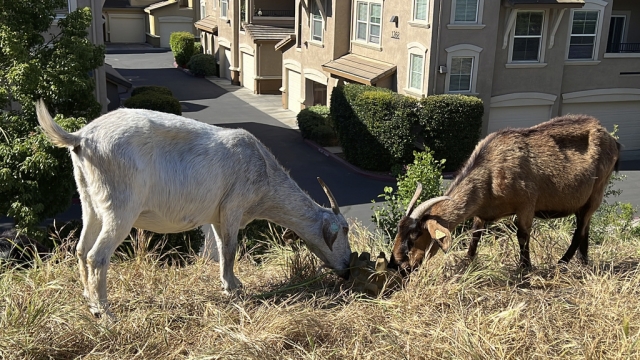After years of devastating wildfires that charred millions of acres in California, thousands of goats have become key in reducing the risk of another year of destruction.
The animals, called targeted grazers, are munching on overgrown vegetation in areas machines can't reach, and demand has been growing for them year after year, according to Tim Arrowsmith, the owner of Western Grazers.
But a change in California's labor laws could make goat herding so expensive that companies like Arrowsmith's, could go out of business, potentially adding fuel to the future fires.
Because goat and sheep herders are on call 24/7, companies have been exempt from paying overtime, with herders earning around $4,000 a month instead.
Now the state says only sheep herders can pay monthly salaries, while goat herders must pay overtime like other farmers.
The California Farm Bureau says this means monthly salaries could jump to $14,000.
Arrowsmith says starting Jan. 1, he might have to triple his worker's salaries.
"We will be forced to sell these goats to slaughter and to the auction yards, and we'll be forced out of business and probably file for bankruptcy," he said.
SEE MORE: In California, goats and sheep return to firefighting duty
On top of their monthly salary, Arrowsmith's herders don't have to pay for food, housing or phones.
He's joined other ranchers lobbying for new legislation that would once again put goat herders in the same category as sheep herders, or else he fears the worst.
"What's at stake for the public is your house could burn up because we can't fire-mitigate," he said.
Lorena Gonzalez Fletcher with the California Labor Federation says goat herders need more protection, as many of them work on temporary visas and speak minimal English, all while taking care of hundreds of goats.
"While the state of California is funding these measures, I think it also has a responsibility to make sure that the workers who are associated with it aren't being abused, that they're not being taken advantage of, that they in fact are being treated fairly," Gonzalez Fletcher said.
The California Department of Industrial Relations did not respond to Scripps News' questions regarding why the change was made.
Trending stories at Scrippsnews.com




